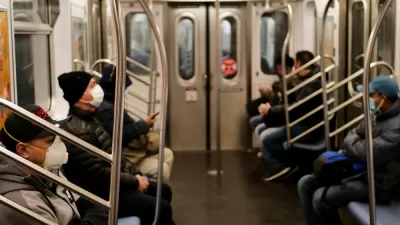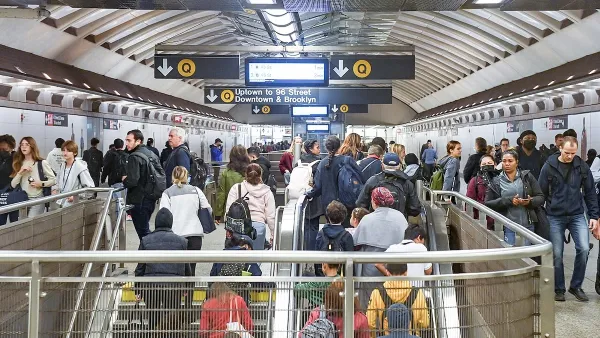Bus systems all over the country are cutting service due to an ongoing shortage of operators—the drivers who make the whole system go. A few examples of success provide a way forward.

The shortage of bus drivers around the country reached crisis proportions long ago. Cities everywhere are cutting service for lack of drivers, including Seattle in March, Portland in June, and Milwaukee in October. A March 2022 survey by the American Public Transportation Association found that nine out of ten transit agencies are having trouble hiring bus operators. Another 71 percent of transit agencies are cutting or delaying service due to ongoing operator shortages.
According to an article published by TransitCenter, two transit agencies, the New York Metropolitan Transit Authority and the San Diego Metropolitan Transit Authority (MTS), are outperforming their peers when it comes to hiring and retaining operators. Interviews with Craig Cipriano, chief operating officer of New York City Transit, and Sharon Cooney, CEO of MTS, provide insight into how their agencies have been able to maintain their workforces.
The article cites competitive wages as a primary driver, especially in New York City. San Diego has offered $5,000 signing bonuses and removed human resources backlogs to make it easier to get people on the job. The MTA has increased training and licensing capacity to keep a steady flow of new recruits behind the wheel. San Diego reports various stages of development on new parking and childcare facilities to help younger people and mothers, especially, navigate the non-standard work hours of drivers.
A primary concern of both agencies is the safety and health of operators. While the risks of Covid-19 for drivers have lessened since early 2020, operators have been sounding alarms about an increasing number of assaults. Protective barriers, extra conflict resolution training, and improved communications are touted as safety measures already in place in New York.
FULL STORY: How to Maintain a Frontline Workforce in 2022

Planetizen Federal Action Tracker
A weekly monitor of how Trump’s orders and actions are impacting planners and planning in America.

Restaurant Patios Were a Pandemic Win — Why Were They so Hard to Keep?
Social distancing requirements and changes in travel patterns prompted cities to pilot new uses for street and sidewalk space. Then it got complicated.

Map: Where Senate Republicans Want to Sell Your Public Lands
For public land advocates, the Senate Republicans’ proposal to sell millions of acres of public land in the West is “the biggest fight of their careers.”

Maui's Vacation Rental Debate Turns Ugly
Verbal attacks, misinformation campaigns and fistfights plague a high-stakes debate to convert thousands of vacation rentals into long-term housing.

San Francisco Suspends Traffic Calming Amidst Record Deaths
Citing “a challenging fiscal landscape,” the city will cease the program on the heels of 42 traffic deaths, including 24 pedestrians.

California Homeless Arrests, Citations Spike After Ruling
An investigation reveals that anti-homeless actions increased up to 500% after Grants Pass v. Johnson — even in cities claiming no policy change.
Urban Design for Planners 1: Software Tools
This six-course series explores essential urban design concepts using open source software and equips planners with the tools they need to participate fully in the urban design process.
Planning for Universal Design
Learn the tools for implementing Universal Design in planning regulations.
Heyer Gruel & Associates PA
JM Goldson LLC
Custer County Colorado
City of Camden Redevelopment Agency
City of Astoria
Transportation Research & Education Center (TREC) at Portland State University
Camden Redevelopment Agency
City of Claremont
Municipality of Princeton (NJ)





























